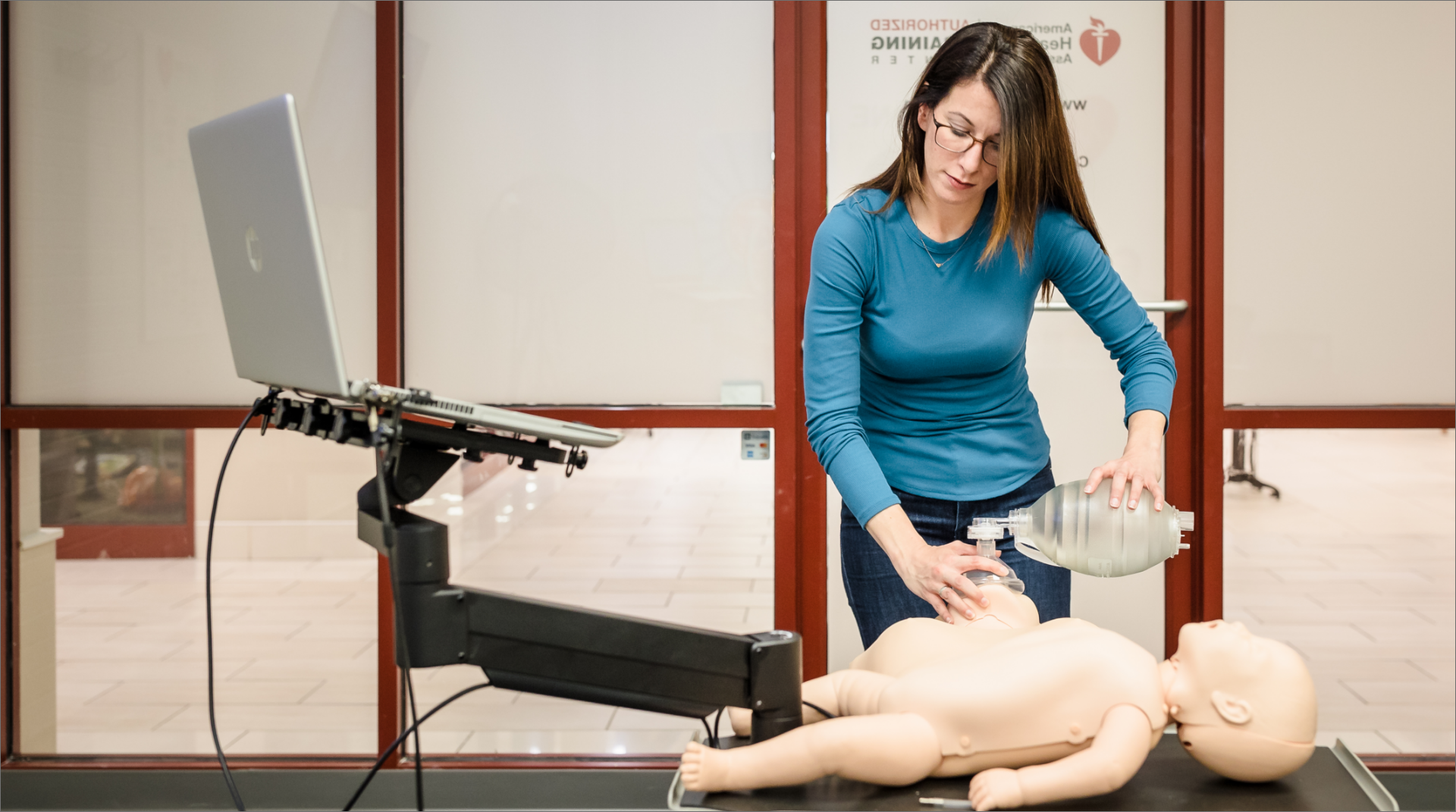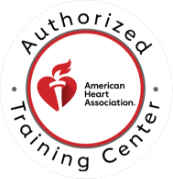

CPR Resource Center
The most comprehensive library of emergency training resources — including videos, articles, downloads, and more.


The most comprehensive library of emergency training resources — including videos, articles, downloads, and more.
Emergency Cardiac Care News Digest is an assortment of current events and news related to emergency cardiac care and resuscitation. Produced by Code One Training Solutions, Emergency Cardiac Care News Digest is published every Friday throughout the year.

Gratitude is not only the greatest of virtues, but the parent of all others
-Xavier University
This is the eighth annual summary of the International Liaison Committee on Resuscitation International Consensus on Cardiopulmonary Resuscitation and Emergency Cardiovascular Care Science With Treatment Recommendations; a more comprehensive review was done in 2020. This latest summary addresses the most recent published resuscitation evidence reviewed by the International Liaison Committee on Resuscitation task force science experts. Members from 6 International Liaison Committee on Resuscitation task forces have assessed, discussed, and debated the quality of the evidence, using Grading of Recommendations Assessment, Development, and Evaluation criteria, and their statements include consensus treatment recommendations. Insights into the deliberations of the task forces are provided in the Justification and Evidence-to-Decision Framework Highlights sections. In addition, the task forces list priority knowledge gaps for further research.
Full access: https://www.ahajournals.org/doi/epdf/10.1161/CIR.0000000000001288
Codeveloped by the American Heart Association and the American Red Cross, these guidelines represent the first comprehensive update of first aid treatment recommendations since 2010. Incorporating the results of structured evidence reviews from the International Liaison Committee on Resuscitation, these guidelines cover first aid treatment for critical and common medical, traumatic, environmental, and toxicological conditions. This update emphasizes the continuous evolution of evidence evaluation and the necessity of adapting educational strategies to local needs and diverse community demographics. Existing guidelines remain relevant unless specifically updated in this publication. Key topics that are new, are substantially revised, or have significant new literature include opioid overdose, bleeding control, open chest wounds, spinal motion restriction, hypothermia, frostbite, presyncope, anaphylaxis, snakebite, oxygen administration, and the use of pulse oximetry in first aid, with the inclusion of pediatric-specific guidance as warranted.
Full access: https://www.ahajournals.org/doi/epdf/10.1161/CIR.0000000000001281
Research found individuals experiencing out-of-hospital cardiac arrest in Baltimore were 45% less likely to receive bystander CPR compared to state and national averages
BALTIMORE — A new study by local academics and emergency medical services found Baltimore City bystanders are less likely to provide CPR than those in Maryland and the rest of the country.
The study was a “rapid retrospective analysis of out-of-hospital cardiac arrest (OHCA) cases from Baltimore City between January 2020 and December 2022, using data from the Cardiac Arrest Registry to Enhance Survival.”
The study was published in the Dove Medical Press and is credited as a collaboration between Johns Hopkins University, Baltimore City Community College, the University of Maryland, and the Baltimore City Fire Department. What it found was not encouraging, the study concludes.
“The findings of this preliminary analysis reveal that, as of 2022, individuals experiencing non-traumatic OHCA in Baltimore City were approximately 45% less likely to receive BCPR compared to both state and national averages,” the study’s authors wrote.
Continue reading and access the study: https://www.ems1.com/cpr/study-finds-baltimore-bystanders-less-likely-to-perform-cpr
Through including both paramedics and relatives, this study attended to the perspectives of the immediate stakeholders in an out of hospital cardiac arrest event, developing a more comprehensive account of the ethical concerns involved.
As the interviews focused on practices, experiences and reflections related to specific cardiac arrest cases, this provided a robust empirical basis for the analysis.
In 2020, the American Heart Association began recommending the use of mobile phone technology by emergency dispatch systems to summon willing bystanders to events nearby that might require CPR or AED use. The success of systems like PulsePoint in the United States, Heartrunner in Denmark, and GoodSam in the UK prompted this guideline revision. These systems recruit trained individuals to respond to nearby cardiac arrest events and begin the chain of survival earlier and more often.
Now, emergency AED registries are informing dispatchers of AEDs near reported cardiac arrest events. Similar to providing cardiopulmonary resuscitation instruction (T-CPR), equipping call takers with AED locations (T-AED) allows telecommunicators to inform callers of nearby defibrillators. Leading emergency medical dispatch (EMD) and tactical map suppliers have integrated AED locations into their standard pre-arrival instructions, significantly reducing the effort required to incorporate AED locations into call-taking workflows. While today, it’s considered a best practice for emergency dispatchers to provide CPR instructions to callers reporting unconscious/unresponsive victims, recommending nearby AEDs is the natural next step in expediting the chain of survival.
Two emergencies and advocacy by a Carolina nurse scientist sparked 24/7 outdoor access to lifesaving defibrillators.
Over the past year, Chapel Hill has strategically installed automated external defibrillators across its parks, ensuring that lifesaving technology is available when it matters most. Two of the strongest advocates for the initiative are Carolina emergency cardiac researcher Jessica Zègre-Hemsey and her husband, Dr. David Hemsey.
Hemsey witnessed one of two separate cardiac arrests that sparked the AED installations, both occurring during a nighttime adult soccer league. The doctor and his teammates immediately performed CPR and called 911, but they were unable to access the nearest AED because it was inside a locked public building. Though the victim survived, the experience highlighted the urgent need for AEDs to be accessible 24/7, particularly in outdoor areas.
“As a nurse scientist with a program of research in emergency cardiac care, and with my husband’s background as a hospitalist and professor in the School of Medicine at UNC, we knew we had to advocate for the integration of this lifesaving technology into our community,” said Zègre-Hemsey. She is an associate professor in the UNC School of Nursing and adjunct professor in the medical school’s emergency medicine department.
“Readily accessible 24/7 AEDs are critical to our community and public health,” she said. “Data show that knowing where AEDs are located in an emergency and having ready access to AEDs are critically important to survival for victims of cardiac arrest. This is a significant investment in our community.”
Read more: https://www.unc.edu/posts/2024/11/21/nursing-research-leads-to-aeds-in-chapel-hill-parks/
Bank of Ireland is rolling out the installation of life-saving defibrillators at each of its branches across Northern Ireland.
Marking the installation of the first device at Bank of Ireland’s Magherafelt branch, George Higginson, Managing Director, Everyday Banking, Bank of Ireland UK said: “I am delighted that we are able to use our local bank branches across Northern Ireland to host this potentially life-saving equipment.
“We have been supporting customers and communities across Northern Ireland for nearly two hundred years and I am proud to not only see thedefibrillators installed, but that we are also making people aware that this equipment is here for the benefit of the whole community.”
As the devices are installed across Bank of Ireland’s local network, each branch will be hosting an event to help raise awareness of the defibrillator and to provide reassurance on how easy they are to use. Where possible, the devices will be fitted outside the branch and made as accessible as possible for community use.
Source: https://www.businesseye.co.uk/news/bank-of-ireland-rolls-out-defibrillators-across-branch-network/
Related-Coffee shops, ATMs may be ideal locations for defibrillators, study says.
Link: https://www.cnn.com/2017/03/20/health/aed-coffee-shop-atm-study/index.html
HANOVER COUNTY, Va. (WRIC) — An automated external defibrillator, or AED, saved a man’s life at Pole Green Park in Hanover County during a softball game.
Jack Mullikin’s wife Sally said he is the epitome of health — which made his heart attack all the more shocking. But thanks to the AED in Pole Green Park, he’s still here today.
“I’m numb — I am still numb,” Sally said.
She got a call that her husband had a massive heart attack and that she needed to get to the hospital.
“[They said] ‘Jack is in the ambulance, he is on the way to regional — you need to get there now,’” she said of that phone call.
It was when Jack went into the dugout and sat down that he thought he was experiencing heat stroke. Within the next few minutes, he’d stopped breathing, 911 had been called, CPR was being performed and the AED was being rushed onto the field.
VANCOUVER, Wash. (KPTV) – As of now, Washington state only requires AEDs at its high schools. But after the devastating loss of her son to a sudden cardiac arrest, one mother in Vancouver is working to change that.
“We got a call and they said, ‘There’s been an incident on the field with Quinn and we had to call an ambulance. Can you get up here?‘” said Kelly Driscoll.
In June of 2009, Kelly and her late husband Scott rushed to Wy’east Middle School in Vancouver after receiving a call that her 13-year-old son collapsed on the track.
“I kneeled down by him and I put my hand on him, there was nothing,” Kelly said.
Quinn was taken to the hospital where efforts to resuscitate him continued but he did not survive. His cause of death was ruled as a sudden cardiac arrest caused by a condition called hypertrophic cardiomyopathy. It’s a condition Kelly did not know her healthy, active 13-year-old son had.
“Right then and there, I think we knew we had to do something,” she said.
Full story: https://www.kptv.com/2024/11/22/vancouver-mothers-aed-donation-honor-late-son-saves-womans-life/
The American Red Cross has been recognized as one of Newsweek’s top online learning providers, highlighting its exceptional contributions to digital education. This accolade reflects the organization’s commitment to delivering high-quality, accessible training programs that cater to a wide range of learners, from healthcare professionals to the general public. Our innovative approach, including the use of adaptive learning technology, sets a new standard in resuscitation and first aid education This recognition underscores the role of the Red Cross as a leader in the field of online learning and professional development.
Nine in 10 cardiac arrests outside the hospital will result in death without immediate intervention.
A local Canadian Red Cross-certified instructor hopes to make every second count by mapping out every available AED or automated external defibrillator in Lanark County.
“Having an AED (following a cardiac arrest) can double a person’s chance of survival,” said Samantha Wheeler, owner of SW First Aid. “It is a wonderful piece of technology that we have a lot of access to. It’s just knowing exactly where to go.”
Recent data from Heart and Stroke found approximately 60,000 cardiac arrests occur outside a hospital each year in Canada, many of these cases unfolding in front of bystanders. But according to the Canadian Red Cross, less than 20 per cent of bystanders will provide first aid.
Knowing its high occurrence and low survival rates, Wheeler is aiming to equip residents of Lanark County with vital information in an endeavour to build a safer community.
Experiencing symptoms of a heart attack? Call 911. Don’t drive yourself to the hospital. Don’t have a friend or family member drive you to the hospital.
The survivorship program was developed by a diverse national taskforce of leading experts in the field of cardiac arrest recovery including scientists, clinicians, advocates, and stakeholders.
Learn more: https://casahearts.org/about/
Feel free to email david@code1web.com
Help Me Find a Course